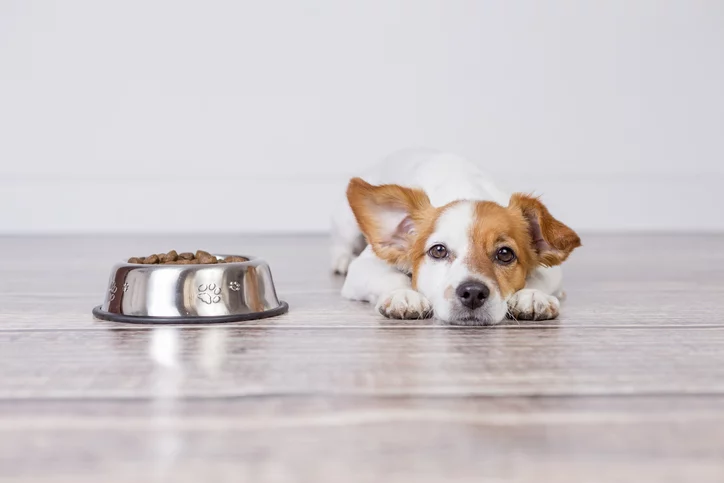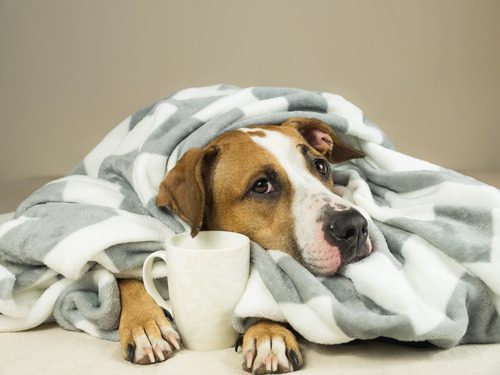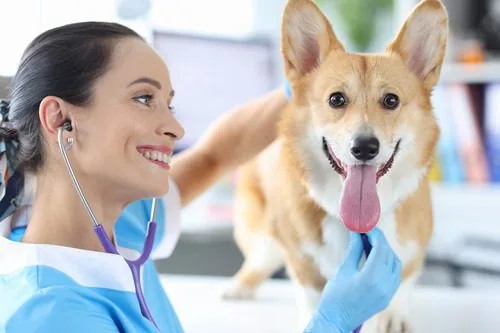6 Reasons Why Your Dog Won’t Eat
Do you have a dog who has suddenly stopped eating? Have you noticed your furry friend’s appetite changing drastically in the last few days? Not eating or wanting to eat is never a good sign in dogs, but it doesn’t always necessarily mean a severe issue, either. Many causes of a loss of appetite in dogs can be easily resolved when you get to the bottom of the issue.

Why Won’t My Dog Eat?
In this article, we’ll show you several common reasons why your dog might not be eating. You can use this information to more easily speak to your vet about your dog’s issue.
Some potential reasons why your dog won’t eat include, but are limited to:
Nausea
Some dogs may develop nausea for a variety of reasons. One of the most common reasons is recent medication. Whether your dog has been given medication for a health concern from the veterinarian or you have recently given him his heartworm or flea preventative, these causes could lead to nausea which would, in turn, lead to less interest in food.
Nausea without any severe causes usually clears up in about a day. If the problem lasts longer, then it may have a more serious underlying cause instead.
Dental Problems
Dogs with dental problems often do not want to eat because it hurts too much to chew their food. If your dog has gum disease, bad teeth, or other dental health concerns, you may notice him slowing down on his food or losing interest in it altogether.
The best way to prevent this from happening is to have your dog’s teeth cleaned regularly and keep up with brushing them in between vet cleanings. However, your dog may also need to be treated for pain or have some other treatments for his dental disease, and only your vet can tell you for sure.
Anxiety or Fear
If your dog suffers from a lot of anxiety or is very fearful, you may notice him losing his appetite often. This may most commonly occur around major events in your household, such as bringing home a new baby, traveling, or adopting another pet.
If you think anxiety could be the underlying cause of your dog’s food issues, speak to your vet for more information. You may need to give your dog anxiety medication or antidepressants to help with this problem. Your veterinarian may also have other solutions to suggest depending on your individual dog’s needs.
Illness
Of course, if your dog is not eating, there is always a chance he is sick. Illness, both acute and chronic, can and often does lead to loss of appetite. If your dog is very sick, he may likely show other symptoms aside from this alone; if he is only slightly sick, you may not notice other symptoms.
If your dog is off of food for more than a day, you should always take him to the vet for a checkup. The vet will be able to determine if there are any serious health problems causing this loss of appetite.
Behavioral Problems
Dogs with behavioral problems may be more prone to going off of food than those with better temperaments and obedience. For example, if your dog is very territorial, he may become upset due to the presence of other dogs or pets in his space, and this may cause him to become uninterested in food.
Keep in mind, however, that many issues that may look like behavioral problems have other underlying causes. For example, separation anxiety looks like a behavioral issue, but it is actually an anxiety problem that can be treated and managed with the help of medication.
Dislike of Food
Finally, if your dog is a picky eater, this may be the only reason he isn’t eating his food. Some dogs simply don’t like certain textures, flavors, or styles of dog food, and some are so picky that they may choose to stop eating a food they have previously enjoyed for years.
One common cause of this problem is subtle changes in the formula used by the dog food company. Even the slightest change may affect the taste or texture, which can in turn cause your dog to notice this and stop eating his usual food because of it.
Talk to Your Vet if Your Dog Won’t Eat
Now that you’ve had a chance to read up on some of the underlying causes that may contribute to why your dog won’t eat, you can schedule a visit with your veterinarian to find out more. You should always take your dog to the vet when you notice changes in his behavior, and this includes his behavior around food.
At The Village Vets, we’ll help get to the root of why your dog’s suddenly stopped eating and come up with the best plan to help them break this habit, whether it be providing care for an illness or recommending a change of food. For additional help on how to help your dog with this condition, or if you’d like to schedule an appointment, contact any of our locations and we’ll be happy to help you and your pet.
Recent Posts
About The Village Vets
The Village Vets is a network of animal hospitals based in Atlanta, GA and the surrounding area. We offer honest, excellent service to our clients in a comfortable, friendly atmosphere. To learn more about our locations and how we can better serve you and your pet, click the button below.
Share This Post
Recent Posts
About The Village Vets
The Village Vets is a network of animal hospitals based in Atlanta, GA and the surrounding area. We offer honest, excellent service to our clients in a comfortable, friendly atmosphere. To learn more about our locations and how we can better serve you and your pet, click the button below.



